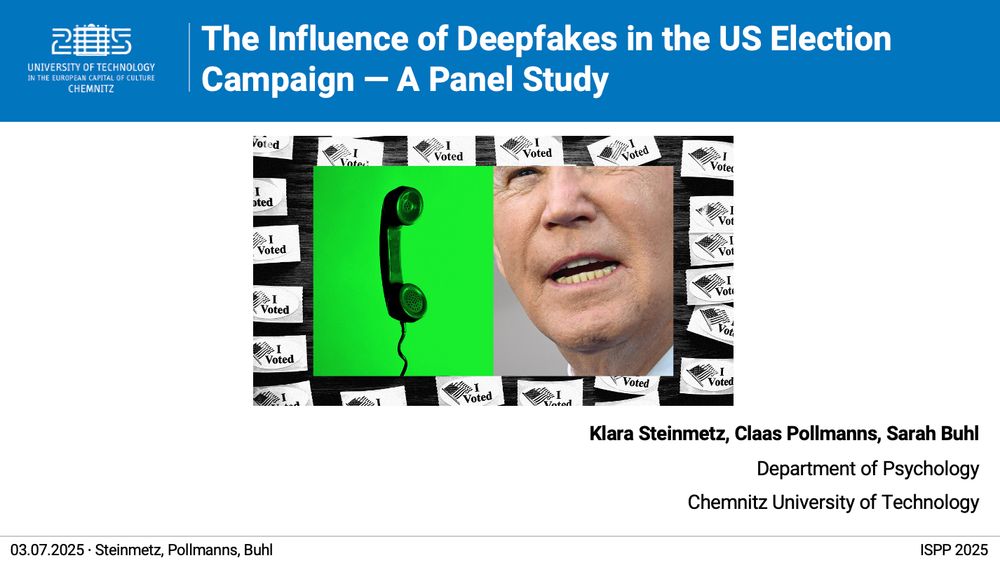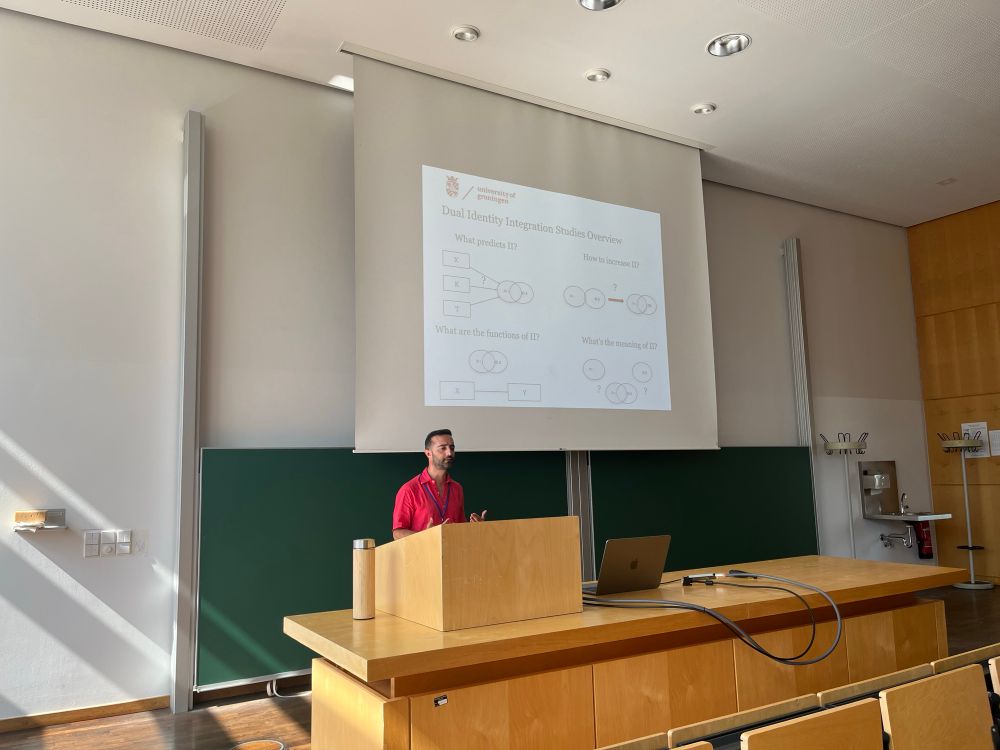
Member of @polpsynetde.bsky.social Organizing Team
We explore how the relationship between two key constructs in intergroup relations—(anti-)egalitarianism and system justification—has changed with rising gender equality over 14 years.
Now accepted at #PSPB 🎉
univienna.zoom.us/j/6675566222...

univienna.zoom.us/j/6675566222...
Link below⬇️

Link below⬇️
Link below⬇️
Link below⬇️





@polpsyispp.bsky.social




@polpsyispp.bsky.social


Drawing on a decade of research, he unpacked what happens when multiple identities clash – and how identity integration & gateway groups can support wellbeing across contexts.

Drawing on a decade of research, he unpacked what happens when multiple identities clash – and how identity integration & gateway groups can support wellbeing across contexts.


Béatrice Sternberg from Paris Nanterre shows that North African gay men in France face intersectional invisibility when their identities are seen as incongruent—making them less memorable, but also less threatening. A double-edged form of bias. #IntersectionalitySGM

Béatrice Sternberg from Paris Nanterre shows that North African gay men in France face intersectional invisibility when their identities are seen as incongruent—making them less memorable, but also less threatening. A double-edged form of bias. #IntersectionalitySGM
Tamino Konur from Kent shows that ethnic discrimination doesn’t just shape ethnic identity—it also impacts gender identity. Ethnic-minority men may lean into masculinity to regain status, especially if high in SDO. A complex ripple effect of bias. #IntersectionalitySGM

Tamino Konur from Kent shows that ethnic discrimination doesn’t just shape ethnic identity—it also impacts gender identity. Ethnic-minority men may lean into masculinity to regain status, especially if high in SDO. A complex ripple effect of bias. #IntersectionalitySGM
Tugçe Aral from Potsdam explores how Black youth in Germany develop ethnic-racial identity. Through early socialization and intersectional reflection, identity is shaped by both marginalization and community. #IntersectionalitySGM

Tugçe Aral from Potsdam explores how Black youth in Germany develop ethnic-racial identity. Through early socialization and intersectional reflection, identity is shaped by both marginalization and community. #IntersectionalitySGM
Yagmur Güleç from Wuppertal shows that trust toward immigrants depends less on migration status and more on religion, ethnicity, and education. Intersectional cues shape who’s seen as trustworthy—in Germany and Turkey alike. #IntersectionalitySGM

Yagmur Güleç from Wuppertal shows that trust toward immigrants depends less on migration status and more on religion, ethnicity, and education. Intersectional cues shape who’s seen as trustworthy—in Germany and Turkey alike. #IntersectionalitySGM

Khatijatusshalihah from ANU shows how Muslim women in Australia face compounded barriers at work—where gender, race, and visible faith intersect. Interviews reveal discrimination, misrecognition, and resistance. #IntersectionalitySGM #WorkplaceBias

Khatijatusshalihah from ANU shows how Muslim women in Australia face compounded barriers at work—where gender, race, and visible faith intersect. Interviews reveal discrimination, misrecognition, and resistance. #IntersectionalitySGM #WorkplaceBias
Lea Luttenberger from Humboldt explores how intersecting identities shape experiences in German academia. Through participatory methods, Lea highlights class, race, and academic identity as entangled—and reveals the limits of standard surveys. #IntersectionalitySGM

Lea Luttenberger from Humboldt explores how intersecting identities shape experiences in German academia. Through participatory methods, Lea highlights class, race, and academic identity as entangled—and reveals the limits of standard surveys. #IntersectionalitySGM

Lou Dörr from Kaiserslautern-Landau shows that cis and trans* men are favored for masculine roles like IT consultant. Nonbinary applicants—especially with feminine birth names—face the most bias. Trans* women were liked, but not hired. #IntersectionalitySGM #TransRights

Lou Dörr from Kaiserslautern-Landau shows that cis and trans* men are favored for masculine roles like IT consultant. Nonbinary applicants—especially with feminine birth names—face the most bias. Trans* women were liked, but not hired. #IntersectionalitySGM #TransRights

